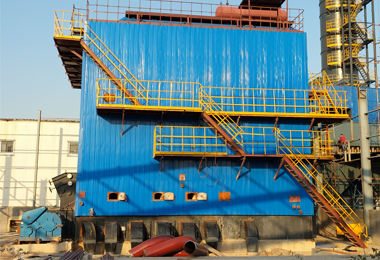
Sep . 29, 2024 04:41 Back to list
Efficient Heat Generation Using Thermal Oil Furnaces for Industrial Applications
Understanding Thermal Oil Furnaces Efficiency and Applications
Thermal oil furnaces are essential components in various industrial heating applications, providing efficient heat transfer solutions. Unlike traditional steam boilers that use water to transfer heat, thermal oil systems utilize organic thermal fluids, enabling higher operating temperatures without the pressure challenges associated with steam systems. This makes them particularly suitable for industries such as food processing, petrochemical, and textile manufacturing.
One of the main advantages of thermal oil furnaces is their ability to maintain consistent temperatures. The thermal oil can reach temperatures of up to 400°C (752°F) with minimal risk of pressure-related issues. This stability is crucial for processes that require precise temperature control, as even slight fluctuations can affect product quality. Furthermore, the thermal fluids used in these systems have a high heat capacity, allowing them to transfer heat efficiently to process equipment.
Thermal oil systems are also appreciated for their flexibility in design and operation. They can be configured to accommodate various types of heat exchangers, including direct and indirect designs, which can further improve heat transfer efficiency. Additionally, many modern thermal oil furnaces come equipped with advanced control systems that can optimize performance and reduce energy consumption. This not only enhances efficiency but also minimizes environmental impact, making thermal oil solutions more sustainable.
thermal oil furnace

Safety is another significant aspect of thermal oil systems. Since they operate at lower pressures compared to steam systems, the risk of explosion or steam-related accidents is reduced. Furthermore, thermal oils are typically designed to handle high temperatures while maintaining stable properties, ensuring that the system operates safely over extended periods.
However, it is essential for operators to monitor the thermal fluid’s condition regularly. Degradation of the thermal oil can lead to reduced efficiency and potential operational issues. Establishing a regular maintenance schedule and following manufacturer guidelines can help ensure the longevity and effectiveness of the system.
In conclusion, thermal oil furnaces represent a reliable and efficient solution for high-temperature industrial heating needs. Their ability to deliver consistent thermal performance and their inherent safety features make them an attractive choice across various industries. As technology continues to evolve, we can expect further advancements in thermal oil systems, paving the way for even more efficient and environmentally friendly heating solutions.
-
High-Efficiency Commercial Oil Fired Steam Boiler for Industry
NewsJul.30,2025
-
High-Efficiency Biomass Fired Thermal Oil Boiler Solutions
NewsJul.30,2025
-
High Efficiency Gas Fired Thermal Oil Boiler for Industrial Heating
NewsJul.29,2025
-
High-Efficiency Gas Fired Hot Water Boiler for Sale – Reliable & Affordable
NewsJul.29,2025
-
High Efficiency Biomass Fired Hot Water Boiler for Industrial and Commercial Use
NewsJul.29,2025
-
High-Efficiency Biomass Fired Hot Water Boiler for Industrial Use
NewsJul.28,2025
Related PRODUCTS






















